Abstract
OBJECTIVE: To describe the unique aspects of childhood grief. To provide a framework for family physicians to use in assisting children to grieve. QUALITY OF EVIDENCE: A MEDLINE search from 1966 to 1999 using the key words children, childhood, grief, mourning, and bereavement revealed mainly expert opinion articles, some non-randomized observational studies, and retrospective case-control studies. MAIN MESSAGE: Although children are influenced by similar factors and need to work through the same tasks of grief as adults, their unique psychological defences and evolving cognitive and emotional development make their grieving different from adults'. Understanding these unique childhood features will allow family physicians to more effectively help children through the tasks of acknowledging a death, working through the pain of that death, and accommodating it. CONCLUSIONS: With a framework for grief counseling that incorporates unique features of children's mourning, family physicians will be in a better position to assist their young bereaved patients.
Full text
PDF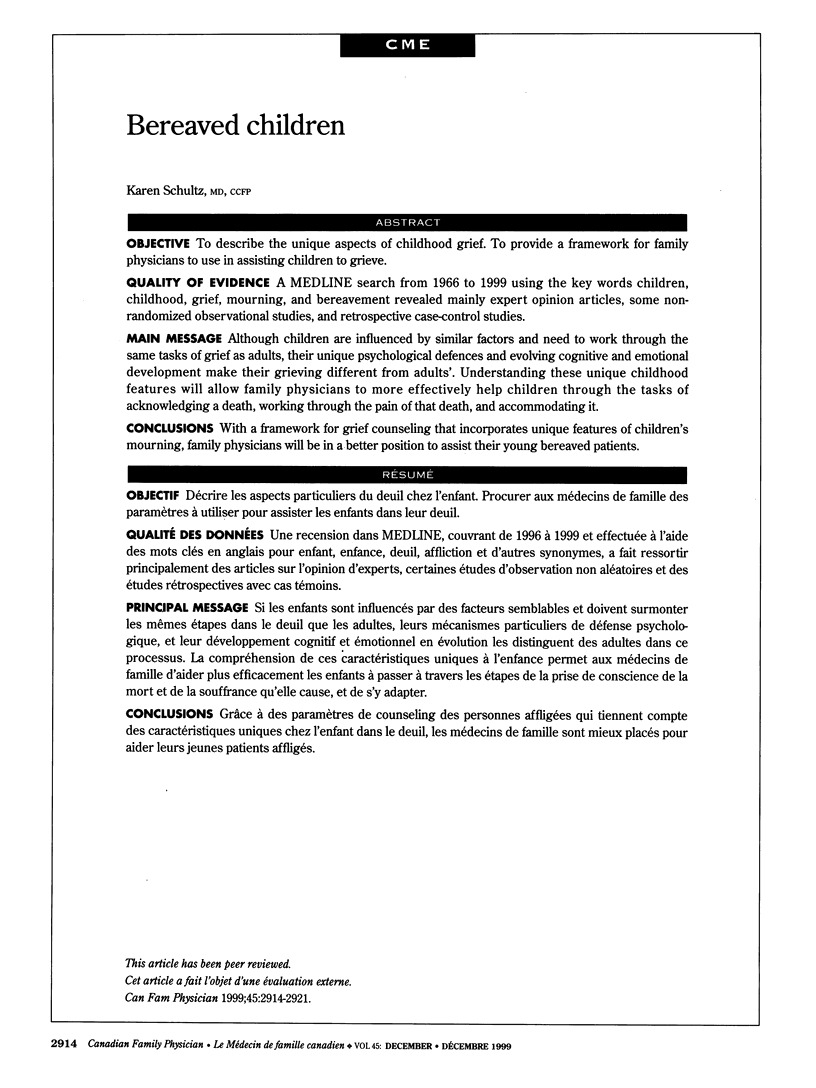
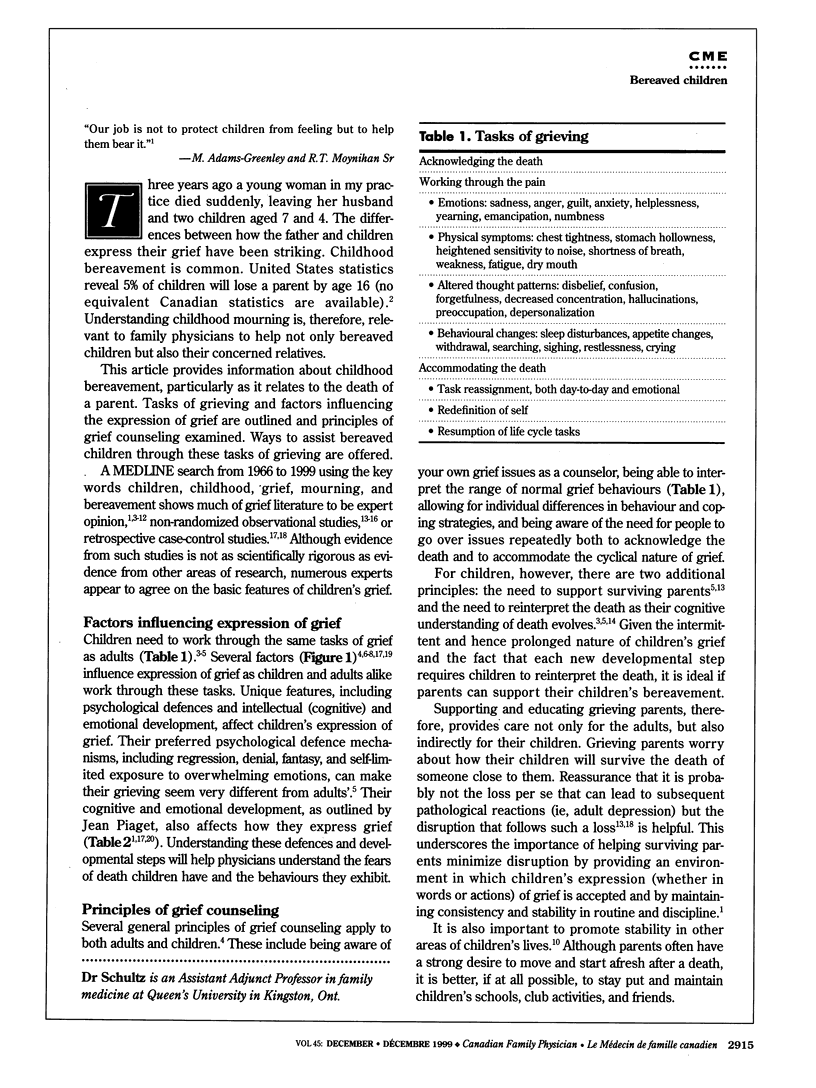
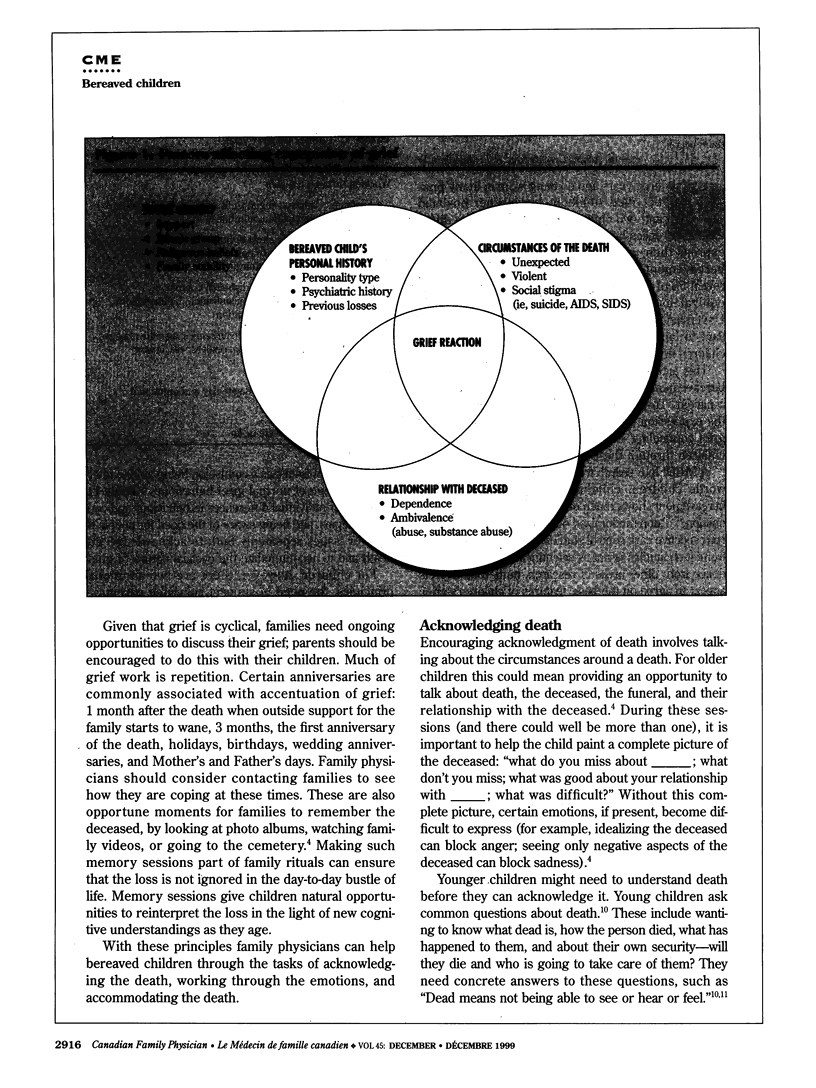
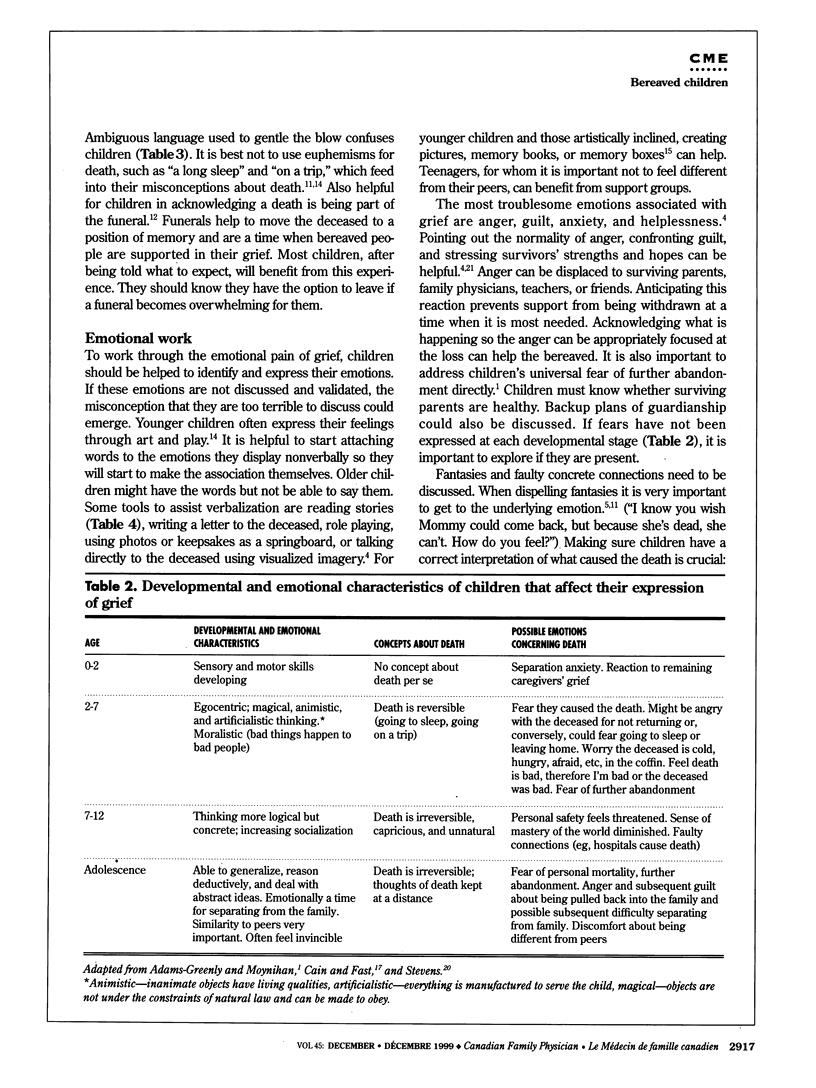
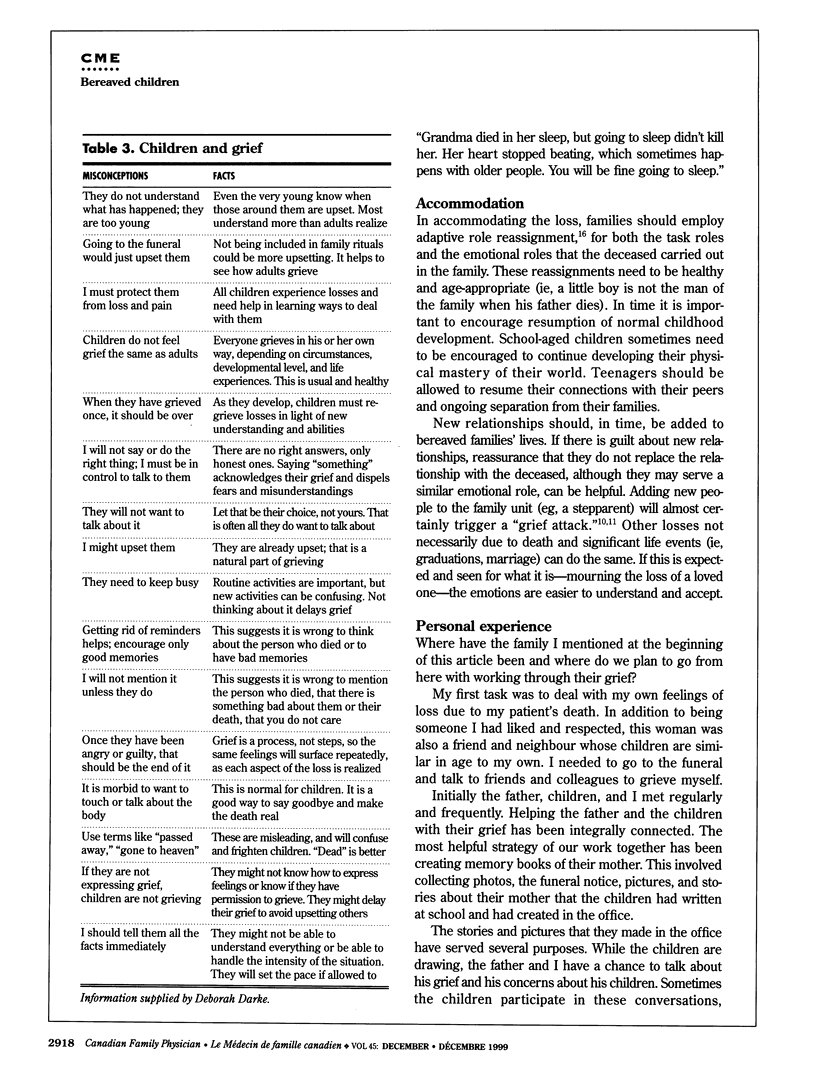
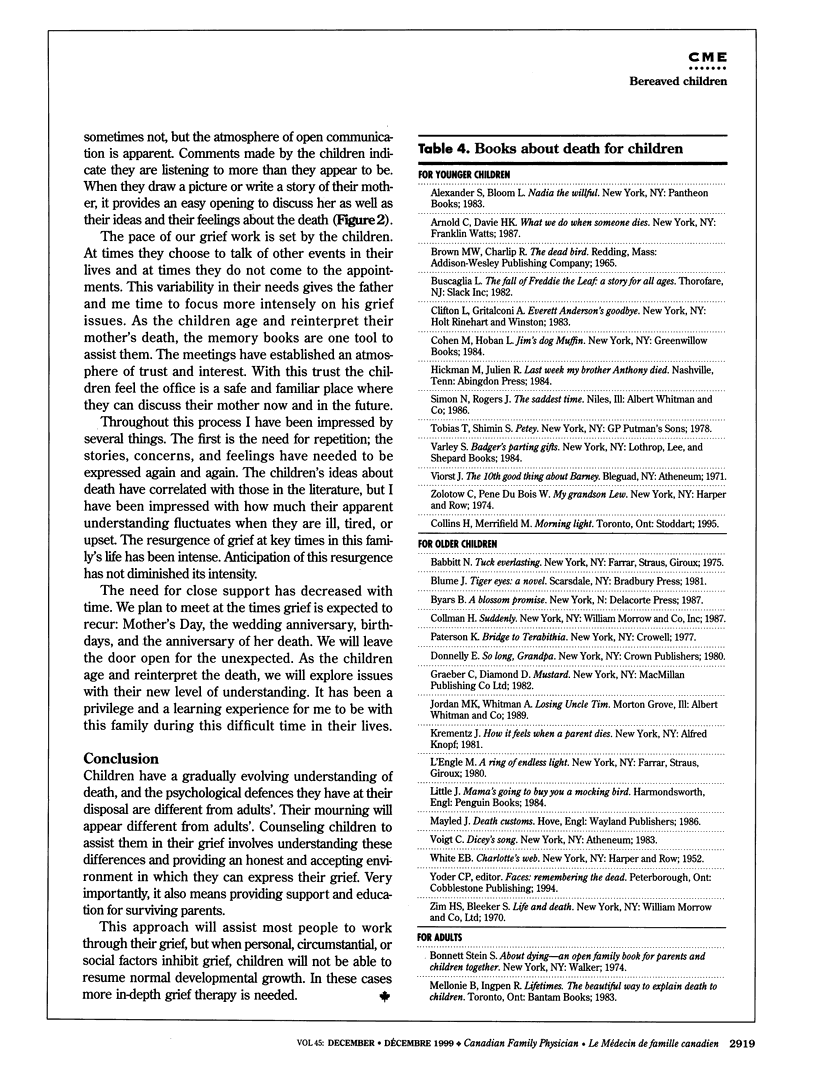
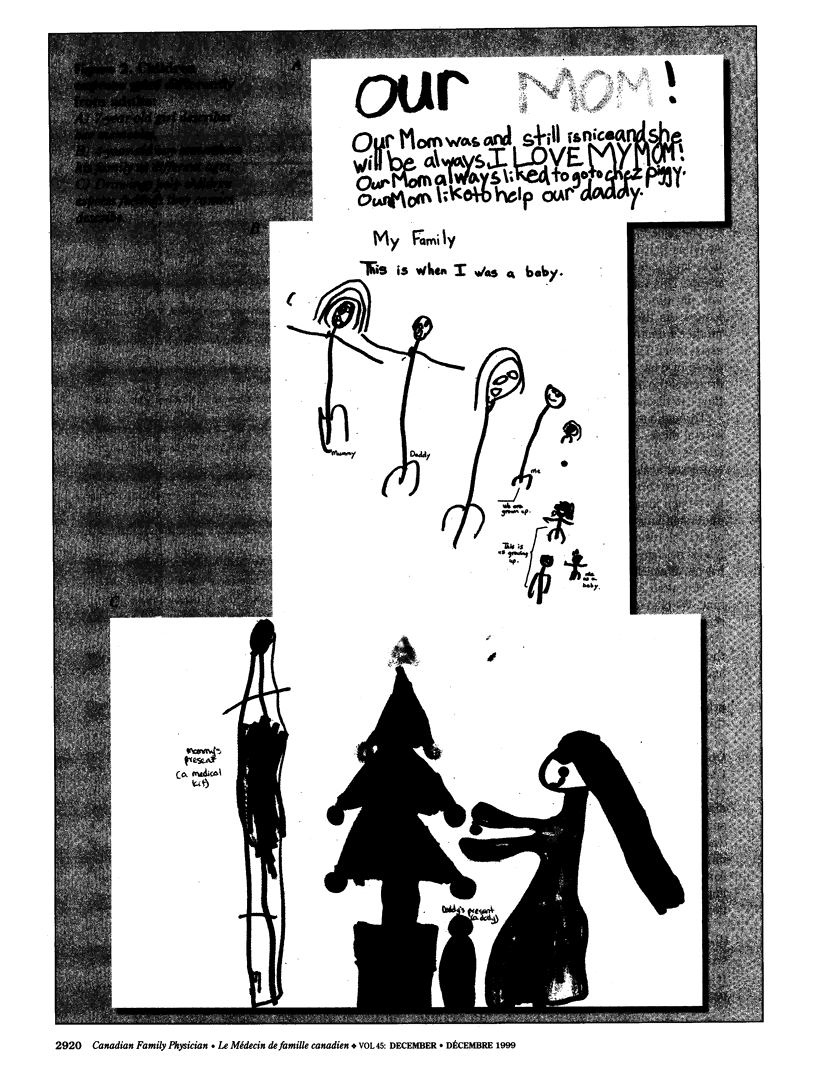
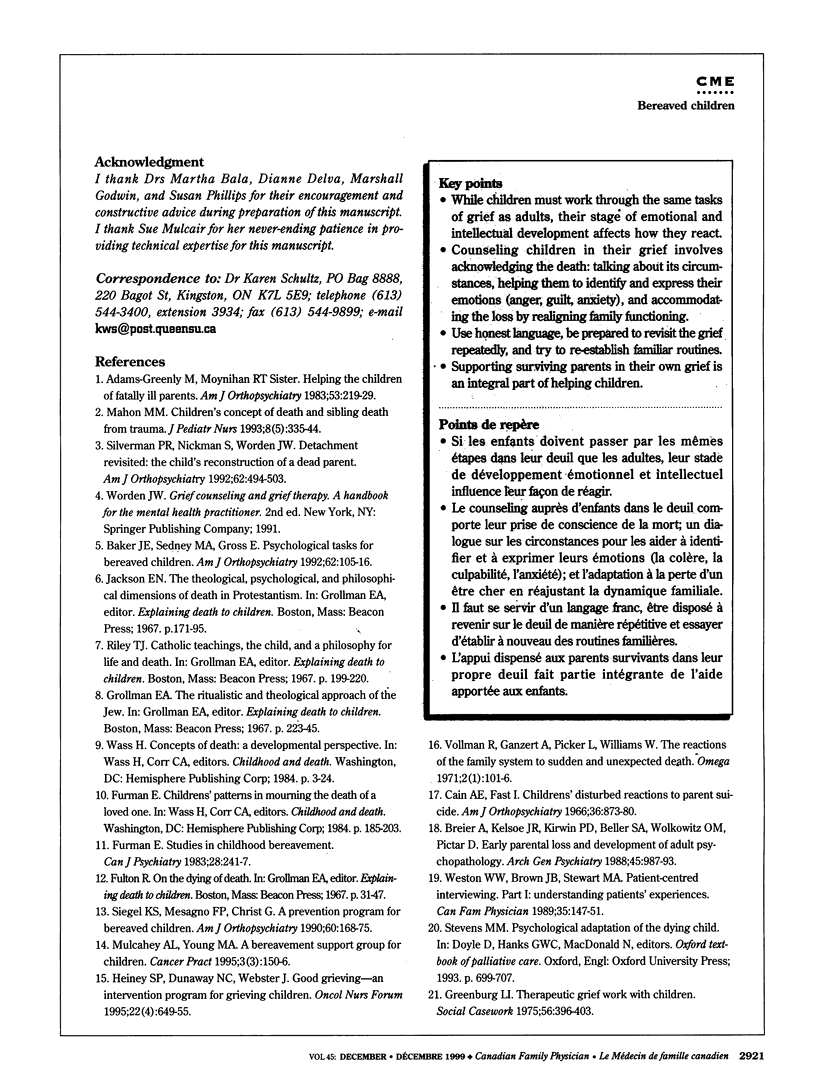
Selected References
These references are in PubMed. This may not be the complete list of references from this article.
- Baker J. E., Sedney M. A., Gross E. Psychological tasks for bereaved children. Am J Orthopsychiatry. 1992 Jan;62(1):105–116. doi: 10.1037/h0079310. [DOI] [PubMed] [Google Scholar]
- Breier A., Kelsoe J. R., Jr, Kirwin P. D., Beller S. A., Wolkowitz O. M., Pickar D. Early parental loss and development of adult psychopathology. Arch Gen Psychiatry. 1988 Nov;45(11):987–993. doi: 10.1001/archpsyc.1988.01800350021003. [DOI] [PubMed] [Google Scholar]
- Cain A. C., Fast I. Children's disturbed reactions to parent suicide. Am J Orthopsychiatry. 1966 Oct;36(5):873–880. doi: 10.1111/j.1939-0025.1966.tb02416.x. [DOI] [PubMed] [Google Scholar]
- Furman E. Studies in childhood bereavement. Can J Psychiatry. 1983 Jun;28(4):241–247. doi: 10.1177/070674378302800401. [DOI] [PubMed] [Google Scholar]
- Heiney S. P., Dunaway N. C., Webster J. Good grieving--an intervention program for grieving children. Oncol Nurs Forum. 1995 May;22(4):649–655. [PubMed] [Google Scholar]
- Mahon M. M. Children's concept of death and sibling death from trauma. J Pediatr Nurs. 1993 Oct;8(5):335–344. [PubMed] [Google Scholar]
- Mulcahey A. L., Young M. A. A bereavement support group for children: fostering communication about grief and healing. Cancer Pract. 1995 May-Jun;3(3):150–156. [PubMed] [Google Scholar]
- Siegel K., Mesagno F. P., Christ G. A prevention program for bereaved children. Am J Orthopsychiatry. 1990 Apr;60(2):168–175. doi: 10.1037/h0079187. [DOI] [PubMed] [Google Scholar]
- Silverman P. R., Nickman S., Worden J. W. Detachment revisited: the child's reconstruction of a dead parent. Am J Orthopsychiatry. 1992 Oct;62(4):494–503. doi: 10.1037/h0079366. [DOI] [PubMed] [Google Scholar]
- Weston W. W., Brown J. B., Stewart M. A. Patient-centred interviewing part I: understanding patients' experiences. Can Fam Physician. 1989 Jan;35:147–151. [PMC free article] [PubMed] [Google Scholar]


